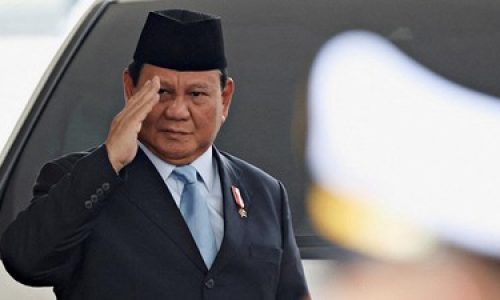The Indonesian Employers Association (Apindo) has submitted data to the government outlining the economic impact of the boycott on products suspected of having affiliations with Israel. The report contains information on the conditions of companies affected by the boycott.
“The data does not belong to Apindo but comes from the businesses that have been affected,” stated Apindo Chairman Shinta W Kamdani.
She did not provide further details about the data submitted to the government. Earlier, Shinta mentioned that the majority of products affected by the boycott are originally Indonesian.
For instance, one of its members accused of having affiliations or supporting Israel is PT Unilever Indonesia Tbk. She clarified that the company with the UNVR code has been doing business in Indonesia for a long time and has no direct or indirect ties to Israel.
Shinta has also investigated UNVR’s involvement with Israel, including its parent company Unilever. She ensured that UNVR is not associated with or supportive of Israel’s aggression against Palestine.
Acting Chairman of the Indonesian Chamber of Commerce and Industry (Kadin), Yuki Hanafi, stated that the boycott activities are not supported by the Indonesian Ulema Council (MUI).
It’s worth noting that MUI issued Fatwa Number 83 of 2023 concerning the Legal Status of Supporting Palestine.
MUI’s fatwa does not include the term “boycott” or specify the names of goods to be avoided to support Palestine. However, Yuki observed that there are some local products affected by the boycott.
“There are several types of goods produced in Indonesia, owned by Indonesian companies, and sold in Indonesia. This boycott must be very careful in determining,” he commented.
In addition, Yuki noted that the value and volume of trade between Indonesia and Israel are very small. However, the impact of the boycott can affect the national economic growth.
According to the Statistics Indonesia (BPS), Israel’s export contribution from January to October 2023 was 0.07% of Indonesia’s total exports. Year-to-date, the country has imported non-oil and gas products from Israel amounting to US$ 16.97 million.
The main contributing commodities to these imports include machinery and mechanical equipment and their parts worth US$ 5.03 million, non-precious metal tools and equipment amounting to US$ 3.86 million, electrical machinery and equipment and their parts totaling US$ 3.04 million, optical, photographic, cinematographic, and medical instruments at US$ 1.45 million, and inorganic chemicals at US$ 0.90 million.









